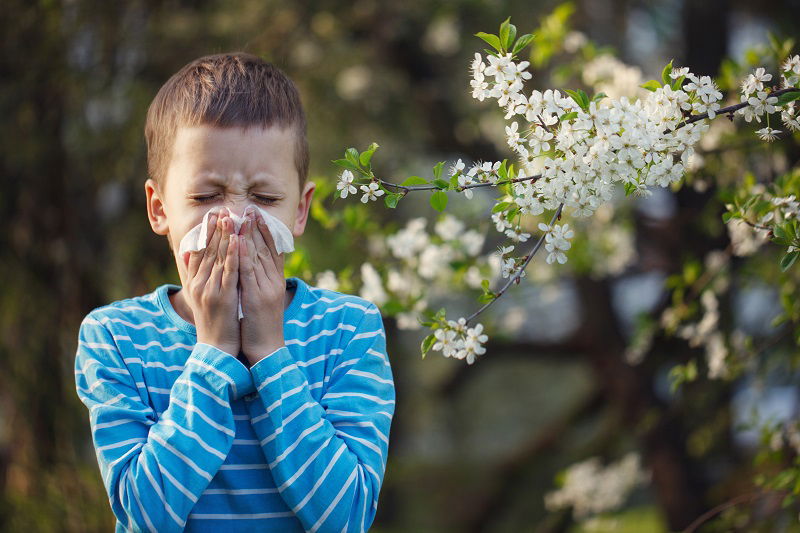Does your child have allergies? If so, he or she is not alone. In fact, one in five American children experiences allergies. Although it might seem difficult at first to navigate allergy symptoms and treatments for children, there are steps you can take to help control their allergy flares.
Here are 5 simple and effective ways to help your child manage their allergies:
- Understand that allergies can affect your child’s school performance.
According to studies, children who suffer from allergies tend to not perform as well in school as their peers who do not have allergies. This is because allergy symptoms like headaches, sneezing, runny nose, fatigue, itchiness, and watery eyes can disrupt their concentration and affect their academic performance.
In addition, common allergy medications like antihistamines can interfere with school performance by causing drowsiness and other side effects.
Speak with your child’s teacher or school principal about what can be done to help your child manage their allergies at school. They may be willing to let your child stay inside during recess on high pollen count days or take other steps to ensure that your child achieves their best performance. - If your child is normally active, watch for signs that allergies are interfering with sports.
Is your child normally active, but has lately been reluctant to participate in outdoor activities? This change may be due to allergies. Your child may be avoiding outdoor sports and other activities in an effort to avoid their allergy symptoms like a runny nose, watery or itchy eyes, a cough, and sneezing.
Furthermore, allergies can cause fatigue. Similar to how you may feel tired when your body is fighting off a virus, allergy fatigue occurs when your body is fighting allergens. Your child may seem less active because they are tired due to allergy fatigue. Your child may also feel extra tired if allergy symptoms are making it difficult for them to get a good night’s rest. - Help your child avoid allergens.
If your child has seasonal allergies, there are a few easy steps you can take to help them avoid allergens that cause symptoms. First, be sure that your child changes their clothes and washes at least their face (or takes a shower or bath) after they come in from outside. This rinses off pollen. Second, cool your home and car with an air conditioner rather than open windows when possible. Third, use a clothes dryer or indoor laundry drying rack instead of hanging laundry outside to dry. Finally, track pollen counts and keep your child indoors when possible on days with high pollen counts. - Find the medication that is right for your child.
Antihistamines might seem like a great solution for allergy symptoms. However, antihistamines affect children differently than adults, and they may not be a good long-term solution for your child’s allergies. Some antihistamines cause drowsiness in young children, while others stimulate the nervous system and result in hyperactivity. In addition, studies have shown there may be negative effects from long-term use of antihistamines.
If you are looking for an alternative, your child’s allergist may suggest allergy drops. Also known as sublingual immunotherapy, allergy drops can be taken at home and do not require any needles. Allergy drops work by introducing low doses of specific allergens, with the goal of lessening the body’s allergic response over time. - Know the difference between allergy symptoms and cold symptoms.
Allergy symptoms can be very similar to the symptoms of a cold—runny nose, sneezing, coughing, and headaches. However, there are a few differences. First, a cold does not cause itchy, watery eyes, but allergies do. Second, fever and general aches and pains are only associated with a cold (or other illnesses), not allergies. Finally, pay attention to how long the symptoms last. If your child continues to experience symptoms for more than 10 days, it’s probably allergies.
Knowing the difference between allergies and a cold can help you make sure that your child receives the appropriate care.
By following these simple steps, you can help your child manage their allergies and control flare-ups. To learn more about allergies in children and what you can do to help, we welcome you to contact us today at West River ENT & Allergy.




